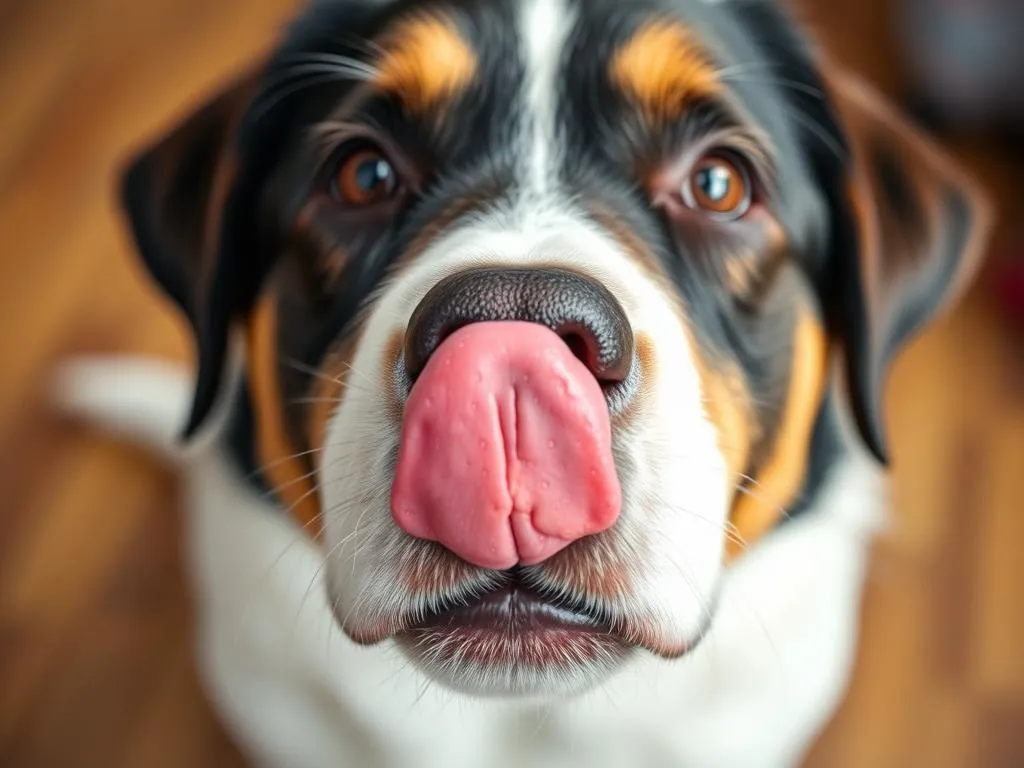
Understanding dog behavior is essential for any pet owner. Dogs communicate their needs, emotions, and even health issues through various behaviors, including the curious act of licking their noses. Why do dogs lick their noses? This article delves into the intricate reasons behind this behavior, exploring everything from instinctual actions to health implications.
Understanding Dog Behavior
The Basics of Canine Behavior
Dog behavior is a complex interplay of instinctual and learned actions. Instinctual behaviors are those that dogs are born with, such as barking, digging, and, of course, licking their noses. On the other hand, learned behaviors develop through interactions with their environment and socialization with other dogs and humans.
Socialization plays a critical role in shaping a dog’s personality and behavior. A well-socialized dog is usually more adaptable and less likely to exhibit problem behaviors. Understanding these basic tenets of dog behavior will aid in interpreting why certain actions, such as nose licking, occur.
Why Behavior Matters
Being able to interpret dog behavior is vital for pet owners. It allows for better communication and understanding between dogs and their humans, fostering a stronger bond. Additionally, many behaviors can signal health issues. Recognizing these signs can lead to early intervention and a happier, healthier dog.
The Anatomy of a Dog’s Nose
Structure and Function
A dog’s nose is an incredible sensory organ, designed primarily for smelling. Canine noses contain up to 300 million olfactory receptors, compared to a human’s mere 5 million. This specialized olfactory system enables dogs to detect a range of scents, making their sense of smell significantly more acute than ours.
The structure of a dog’s nose allows it to analyze complex scent molecules, which are essential for their survival and social interactions. The wetness of a dog’s nose also plays a significant role, as moisture helps to capture scent particles more effectively.
Importance of the Nose in Communication
Dogs communicate a lot through their noses. They sniff each other to gather information about health, mood, and even dietary habits. The significance of scent in a dog’s social interactions cannot be overstated; it’s their primary means of understanding the world around them.
Reasons Why Dogs Lick Their Noses
Natural Instincts
Licking is a natural behavior for dogs. It serves various purposes and is often tied to their survival instincts. In the wild, a dog may lick its nose to clean it, making it easier to smell potential prey or identify threats. This instinctual behavior persists even in domesticated dogs, where survival isn’t necessarily at stake.
Moisturizing the Nose
One of the practical reasons for licking is to keep the nose moist. A dog’s nose needs to be hydrated to function optimally. The moisture enhances their sense of smell, which is crucial for their interaction with the environment. Licking helps maintain this moisture balance, especially in dry conditions.
Taste and Exploration
For dogs, licking is also a primary way to explore their world. Just as humans might touch objects to learn more about them, dogs use their mouths and noses to gather information. Licking allows them to discover new scents and tastes, contributing to their understanding of their surroundings.
Stress and Anxiety
Interestingly, licking can also indicate stress or anxiety. Dogs may lick their noses when they are feeling nervous or overwhelmed. This behavior can be a self-soothing mechanism, providing comfort in stressful situations. Observing your dog in various scenarios can help identify if licking is a response to anxiety.
Health Issues
While licking their noses can be normal behavior, excessive licking may signal underlying health problems. Issues such as allergies, infections, or even dental problems can lead to increased nose licking. If you notice your dog licking more than usual, it may be time to consult a veterinarian to rule out any medical concerns.
When to Be Concerned
Signs of Abnormal Behavior
Not all licking is a cause for concern, but certain indicators can suggest that the behavior is excessive or problematic. If your dog is licking its nose obsessively or displaying other unusual behaviors, it may be time to investigate further. Signs to watch for include:
- Frequent, prolonged licking
- Changes in eating or drinking habits
- Signs of discomfort or pain
- Changes in mood or energy levels
Consulting a Veterinarian
If you suspect that your dog’s nose licking is abnormal, seeking professional help is crucial. A veterinarian can perform various tests and assessments to determine if there is an underlying health issue contributing to the behavior. Early intervention can lead to better outcomes and a healthier pet.
Encouraging Healthy Behavior
Providing Mental Stimulation
One of the best ways to reduce stress and anxiety in dogs is through mental stimulation. Engaging your dog in activities such as puzzle toys, obedience training, or interactive games can help keep their mind sharp and reduce the urge to lick excessively. Regular play and exercise are also essential for a well-rounded, happy dog.
Training Tips
If your dog tends to lick excessively, employing training strategies can help redirect this behavior. Techniques such as positive reinforcement, where you reward your dog for engaging in alternative behaviors, can be effective. Commands like “leave it” or “no lick” can be reinforced with treats or praise when your dog complies.
Creating a Comfortable Environment
A stress-free living space is vital for your dog’s well-being. Reducing triggers of anxiety—such as loud noises, unfamiliar visitors, or chaotic environments—can help your dog feel more secure. Providing a comfortable resting area and maintaining a consistent routine can also contribute to a calmer atmosphere.
Conclusion
Understanding the nuances of dog behavior, including why do dogs lick their noses, is essential for any dog owner. From natural instincts and communication methods to potential health issues, each aspect of this behavior provides insight into your dog’s needs and emotions. By observing your dog closely and being aware of changes in their behavior, you can ensure they lead a healthy, happy life. Remember, every dog is unique, and their behaviors will reflect their individual personalities and experiences.









